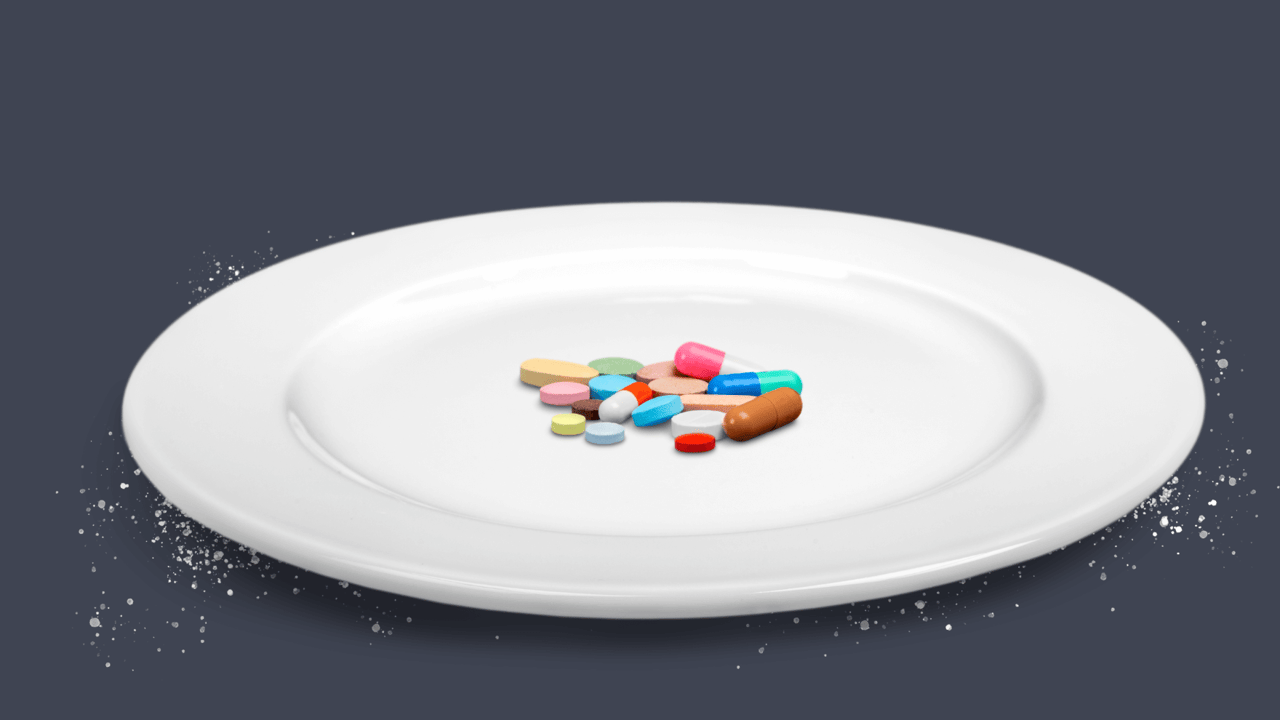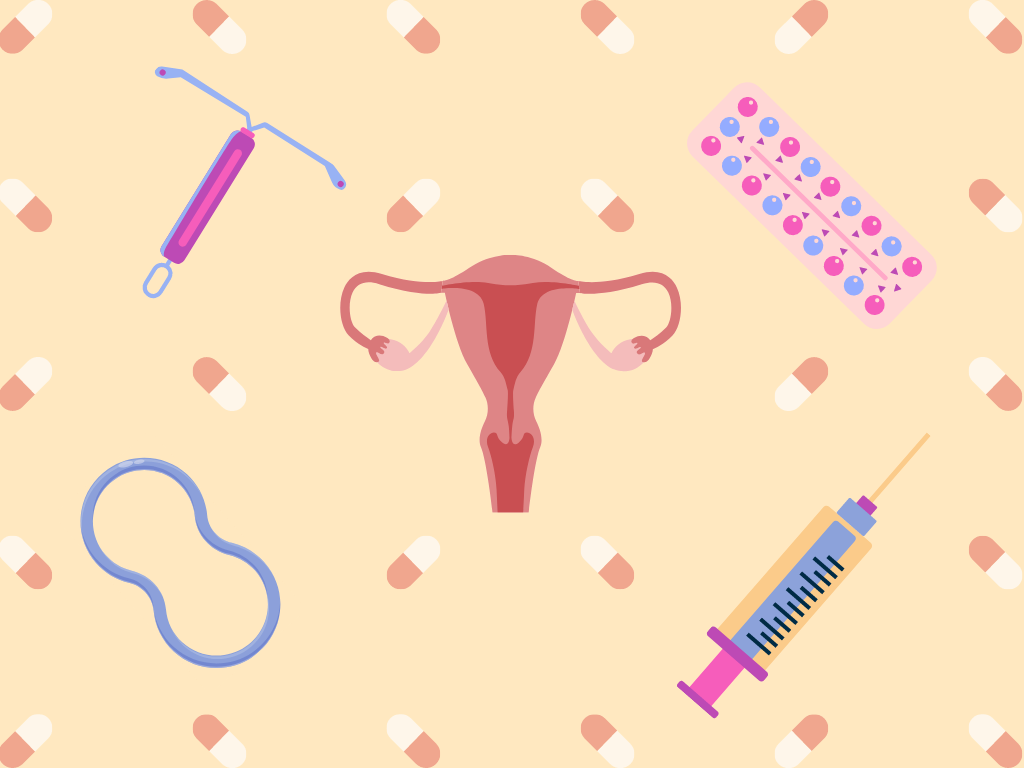ADHD medications relieve some of the symptoms associated with attention-deficit/hyperactivity disorder, or ADHD. However, as with many pharmaceuticals, ADHD meds can have side effects like headaches, trouble sleeping, and mood swings.
The most common side effect of ADHD medication? Reduced appetite. (Also referred to as "suppressed appetite")
Losing your appetite because of medication can be a big concern, as it often results in undereating, which comes with its own problems.
⚠️ Disclaimer: Inflow strongly discourages the use of any stimulants for weight loss purposes. Our aim is to support the well-being of all our readers and encourage anyone struggling with eating disorders to seek help. If you require assistance, we recommend reaching out to the National Eating Disorders Association (NEDA) for support and resources.
Too l ong; didn't read
- ADHD medication often suppresses appetite, especially in children. (But anyone can experience it.)
- Stimulant medications are the most likely of all ADHD treatment methods to decrease feelings of hunger and cause disordered eating.
- Your appetite drops with ADHD meds because the drug boosts dopamine production in your brain, a hormone that tells your body when you're full.
- You can minimize the negative effect of appetite reduction by starting your day with breakfast, eating nutritious meals, and meal prepping, to name a few.
ADHD medication and how it affects your appetite
Skipping meals can cause malnutrition and disordered eating, both of which can cause things like:
- Muscle weakness
- Fatigue
- Increased susceptibility to (and prolonged) illnesses
- Inability to concentrate
- Cold body temperature
- Depression
- Rapid weight loss
Though adults taking ADHD medication may experience appetite loss, this issue is more common among children with ADHD.
Can ADHD meds cause weight gain?
Not typically. On the contrary, people taking ADHD meds often lose weight due to the appetite suppression effects.
However, studies show that children who started taking stimulant ADHD medication before age 10 or 11 had higher BMIs by the time they reached age 13-14. This suggests that early and long-term stimulant use may affect the metabolism of young ADHDers, though researchers also hypothesized that this could be linked to a growth catch-up.1
Put simply, more research is needed to know the exact link.
Why am I less hungry after I take Adderall?
Stimulant medications like Adderall significantly affect appetite and may even push your body to burn calories faster than usual.2
Stimulants cause people to lose their appetite because they increase the amount of dopamine in the brain.3 Dopamine is commonly known as the "feel-good hormone," but it serves another purpose: telling your body when you're full.4
Thus, by increasing dopamine levels, Adderall tells your brain that you've already "fueled up," even if you haven't eaten anything.
Because Adderall also reduces ADHD symptoms—specifically inattention, restlessness, and impulsivity—you may find yourself so focused that you forget to eat.
How to manage a decreased appetite
To override the chemicals that send out the "we're not hungry!" signal, you must be intentional about how you eat while taking ADHD medication.
Here are some tips to help maintain healthy eating habits with ADHD meds.
1. Start your day with a solid breakfast.
Before you take your ADHD medication for the day, try to have a full meal at least thirty minutes prior. Though this may mean you have to wake up a bit earlier, your brain and body will thank you. Aim to make it a breakfast with plenty of nutritional value, such as oatmeal, yogurt, or a breakfast shake.
💡 Pro tip! No one said that cereal bars and fruit snacks are just for kids! So if you're short on time, grab one before heading out the door. At least it's something.
2. Eat nutrient-dense meals
Since mindless snacking and binge-eating aren't much of an issue while taking ADHD meds, re: "not hungry," this provides an excellent opportunity to ensure that the meals you do eat are packed with the vitamins and nutrients your body needs, regardless of the medication.
The more high-calorie and filling the meals, the better.
💡 Pro tip! It's best to avoid foods high in vitamin C (ascorbic acid) and citric acid while taking certain ADHD medications. (Read more about "The Grapefruit Rule" here.)
3. Set alarms to remind yourself to eat. (Yes, really.)
We should all aim for three solid meals and a couple of snacks daily. But once the Adderall (or Vyvanse, Ritalin, Concerta) kicks in, your dopamine-boosted brain won't send you its typical cues when you're hungry. So set alarms that remind you when it's time to take a break from whatever you're doing and eat.
💡 Pro tip! Put your timer or alarm clock in the kitchen. That way, when the alarm sounds, you have to get up to turn it off. And, hey, look! Now you're right by the chips and salsa!
4. Try meal-prepping.
Finding the energy to cook when your appetite is lacking may be challenging, which can give you even more of a reason to skip meals.
To avoid this, spend one day a week meal-prepping so that eating is as simple as possible. Eating something nutritious will help you keep your health on track.
💡 Pro tip! If the idea of meal prep sounds too overwhelming, try keeping a stash of protein bars on hand for emergencies.
5. Pay attention to your body's cues and basic needs.
Though the dopamine boost from the ADHD meds will make it more difficult for your brain to tell your body that it needs to eat, there are other signs your body gives off when it needs food:
- Growling stomach
- Shakiness
- Headaches
- Inability to focus
- Loss of energy
💡 Pro tip! Again, there's no shame in setting reminders to eat, drink water, etc.! You can also set up a habit chart to help you track when you've remembered to eat. This will also help you correlate those awful symptoms with your eating habits.
Now what?
Not regularly eating while taking ADHD medications can cause many of the same symptoms that made you reach for the medication in the first place. So, to help your ADHD meds do their job, and to keep your body healthy and happy, make eating a priority.
For more information, support, and resources, visit the following websites:
- National Eating Disorders Association
- Why you shouldn't use Adderall to lose weight - The Recovery Village
NEDA also has a 24/7 text message line. Text 'NED!' to 741741.
-
Sources
1 Obesity Research Journal | ADHD Medication, Dietary Patterns, Physical Activity, and BMI in Children: A Longitudinal Analysis of the ECLS-K Study
2 International Journal of Psychiatry in Clinical Practice | Effect of methylphenidate treatment on appetite and levels of leptin, ghrelin, adiponectin, and brain-derived neurotrophic factor in children and adolescents with attention deficit and hyperactivity disorder
3 Frontiers in Pharmacology | The Role of Dopamine in the Stimulant Characteristics of Novel Psychoactive Substances (NPS)—Neurobiological and Computational Assessment Using the Case of Desoxypipradrol (2-DPMP)
4 Endocrinology and Metabolism (EnM) | Dopaminergic Control of the Feeding Circuit








